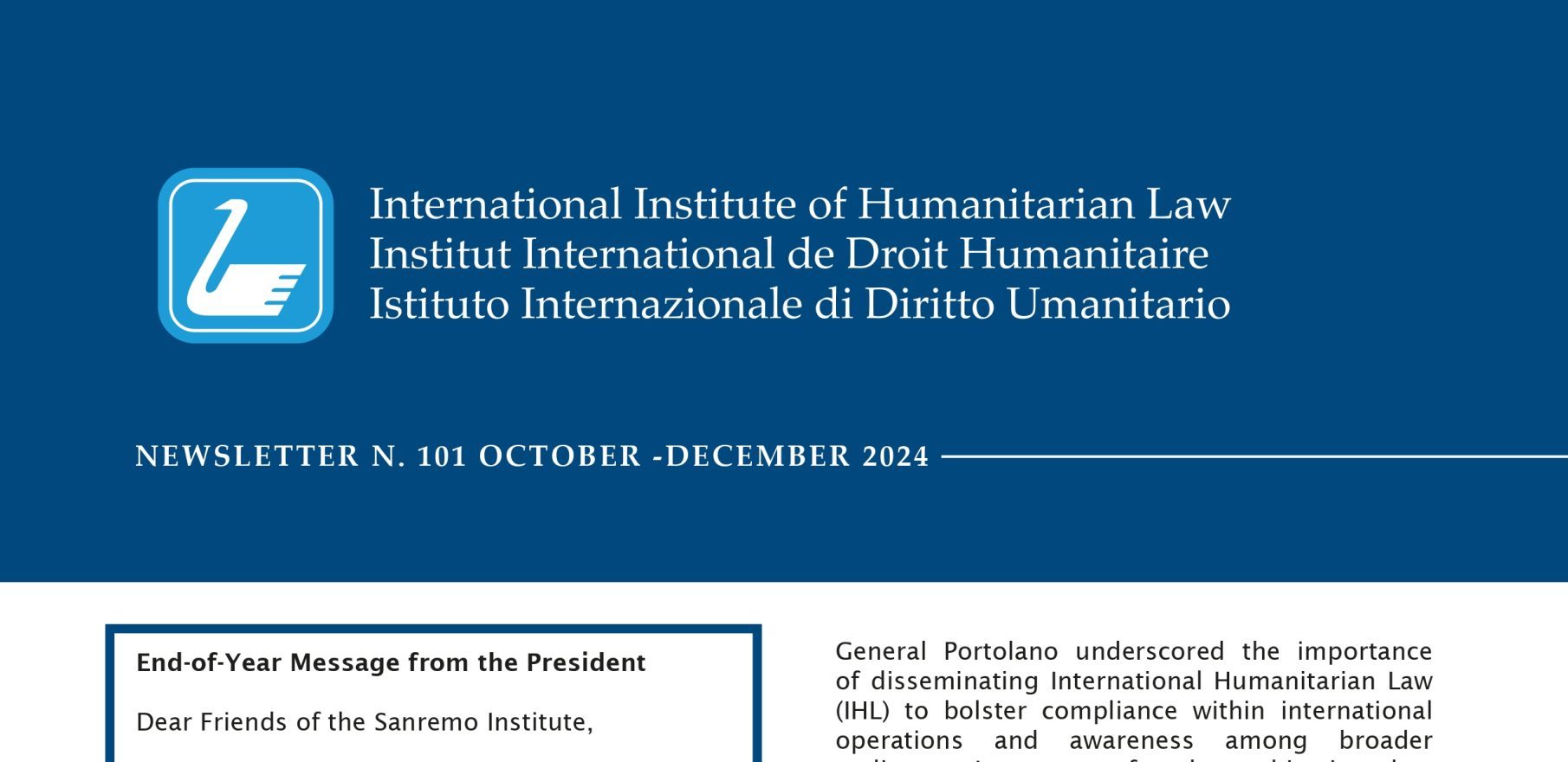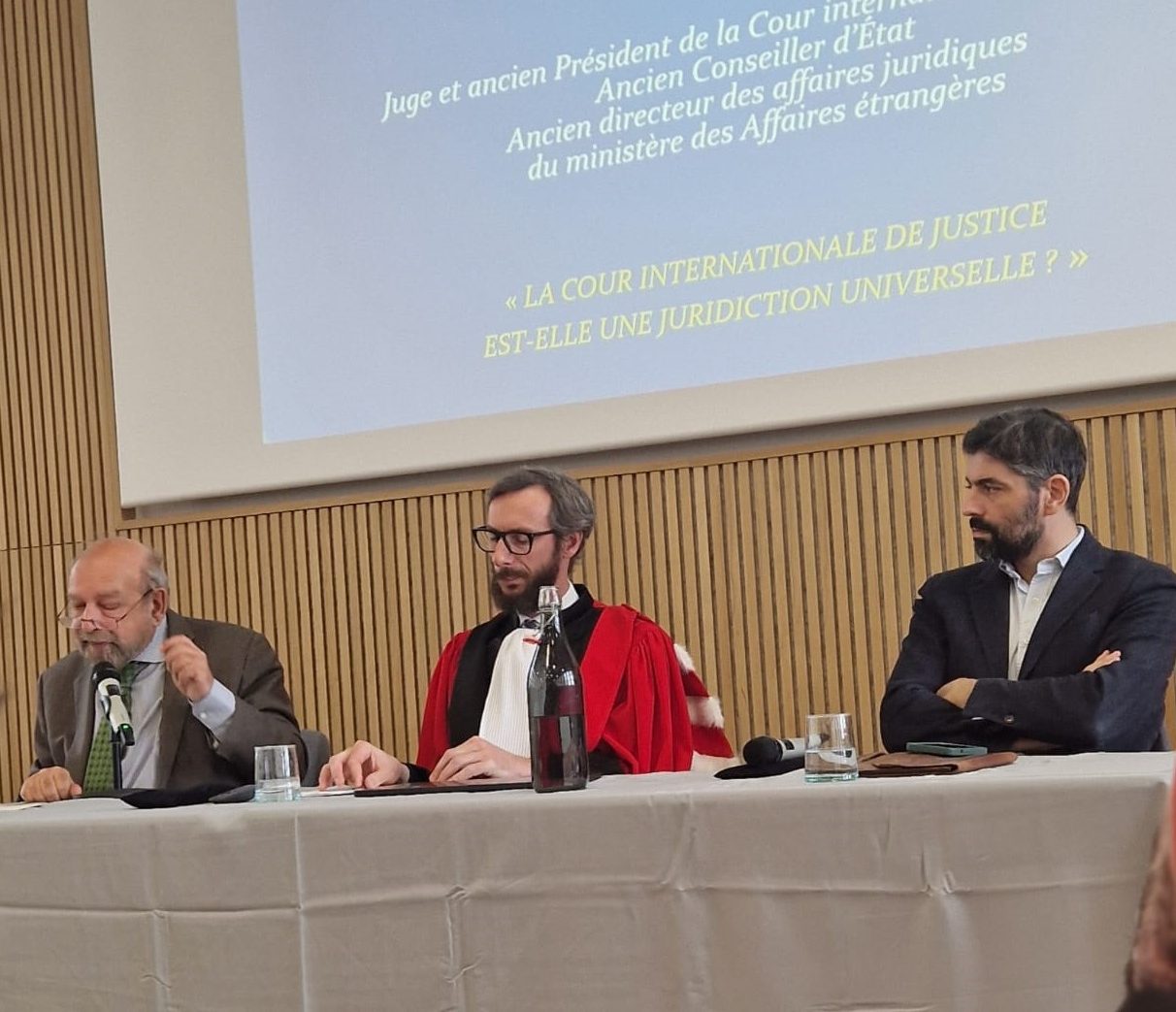Location: remote/home-based with reliable internet connection
Working languages: English and Arabic (classical)
Contractual modality: 12 months consultancy contract with the possibility of extension
Remuneration: Euro 2,500 to 3,500/month
Deadline for applications: 7 January 2025
Background of the Institute
The International Institute of Humanitarian Law is an independent, non-profit, humanitarian association founded in 1970 in Sanremo, Italy. The Institute organizes training courses in the fields of international humanitarian law, human rights, refugee law, and related issues and promotes dialogue by organizing international conferences, meetings, and seminars of high-level government officials, scholars, and practitioners.
The mission of the Department of International Refugee Law and Migration Law (the Department) is to enhance the knowledge and skills of government officials, international organizations, civil society representatives, and academics involved in working with individuals in need of protection, including refugees, internally displaced persons, stateless individuals, and migrants. Through its capacity-building initiatives and the exchange of experiences, the Department advocates for preserving human rights, thus complementing and augmenting the efforts of various stakeholders in the protection field. In 2024 alone, the Department’s team of more than 30 professionals from 16 countries developed and implemented 60 initiatives that benefited over 2300 participants from 167 countries.
The Institute enjoys a global reputation of excellence and has consultative status at ECOSOC, a participatory status at the Council of Europe, and observer status at the United Nations High Commissioner for Refugees ExCom, as well as with the International Organization for Migration.
The Project Coordinator will coordinate end-to-end project activities, including developing detailed work plans, coordinating activity implementation, liaising with relevant experts to deliver the initiative, communicating with stakeholders (internal and external), and writing reports for assigned projects. The Project Coordinator will also be responsible for facilitating and moderating sessions.
Primary duties and Responsibilities
- Serve as a focal point between the partner and the Department throughout the project cycle and coordinate effective planning/calendarization and effective implementation of the assigned project.
- Coordinate with stakeholders (internal and external) in assessing needs and project requirements, planning, implementing, and monitoring detailed tasks, including clarifying roles and responsibilities.
- Design and update sessions based on the latest trends, policy papers, and legal developments.
- Develop a system for regularly updating the teaching material of the assigned project based on the latest legal developments, policies and guidelines, and other material developed by the UNHCR and other relevant stakeholders.
- Coordinate with the Institutional Engagement Unit and liaise with United Nations operations in the field, governments, non-governmental organizations and academia to ensure the participation of the target audience.
- Ensure all training and reference materials are uploaded to the system and accessible to participants and facilitators.
- Assume the role of lead moderator and coordinates with facilitators and lecturers the development and delivery of sessions in line with the standards of the Department.
- Follow up with participants, facilitators, and other stakeholders involved in the project/initiative to collect feedback, assess the project’s impact, and use the data to improve the current project and develop new projects.
Qualifications, Experience, and Skills
- University degree in social sciences focusing on Law, Social Sciences, International Relations, Educational Science, Training for Adults;
- Experience in program management includes planning, organizing, coordinating communication with various stakeholders, and monitoring deadlines;
- Organized and detail-oriented, comfortable working with diverse teams and competing priorities;
- Experience in facilitation and moderation of sessions;
- Excellent communication skills to interact with and influence internal and external stakeholders;
- Excellent organizational skills, including detailed planning, task delegation, and monitoring deadlines;
- Problem-solving skills to address issues and challenges that can arise throughout the project cycle;
- Fluency in English and Arabic (classic), both verbal and written.
- Working knowledge of other UN languages, such as French, Spanish, and Russian;
- Experience in instructional design of learning programs and teaching methodologies;
- Experience in working with the ORACLE system;
- Background or lived experience on forced displacement or statelessness;
- Motivation and passion for working in an organization supporting the protection of refugees, internally displaced people, stateless people, and migrants;
- Experience working directly with people needing protection and groups with specific needs.
How to apply and selection process
- Please submit your CV including at least two references (only names, title, organization and contact details) and the motivation letter through this link: https://iihl.peopleforce.io/careers.
- Only short-listed candidates will be contacted for interviews and other relevant assessments.
- The Institute may begin the interview process before the application deadline should suitable candidates be identified.
The Institute is committed to diversity and inclusion within its workforce. All qualified candidates are encouraged to apply, irrespective of gender, nationality, religion, ethnic origin, sexual orientation, disability, pregnancy, age, or other status. Applications of persons with displacement backgrounds are particularly welcomed.
![Project Coordinator – English and Arabic – Department of International Refugee Law and Migration Law [CLOSED]](https://iihl.org/wp-content/uploads/2022/09/vacancies.png)

